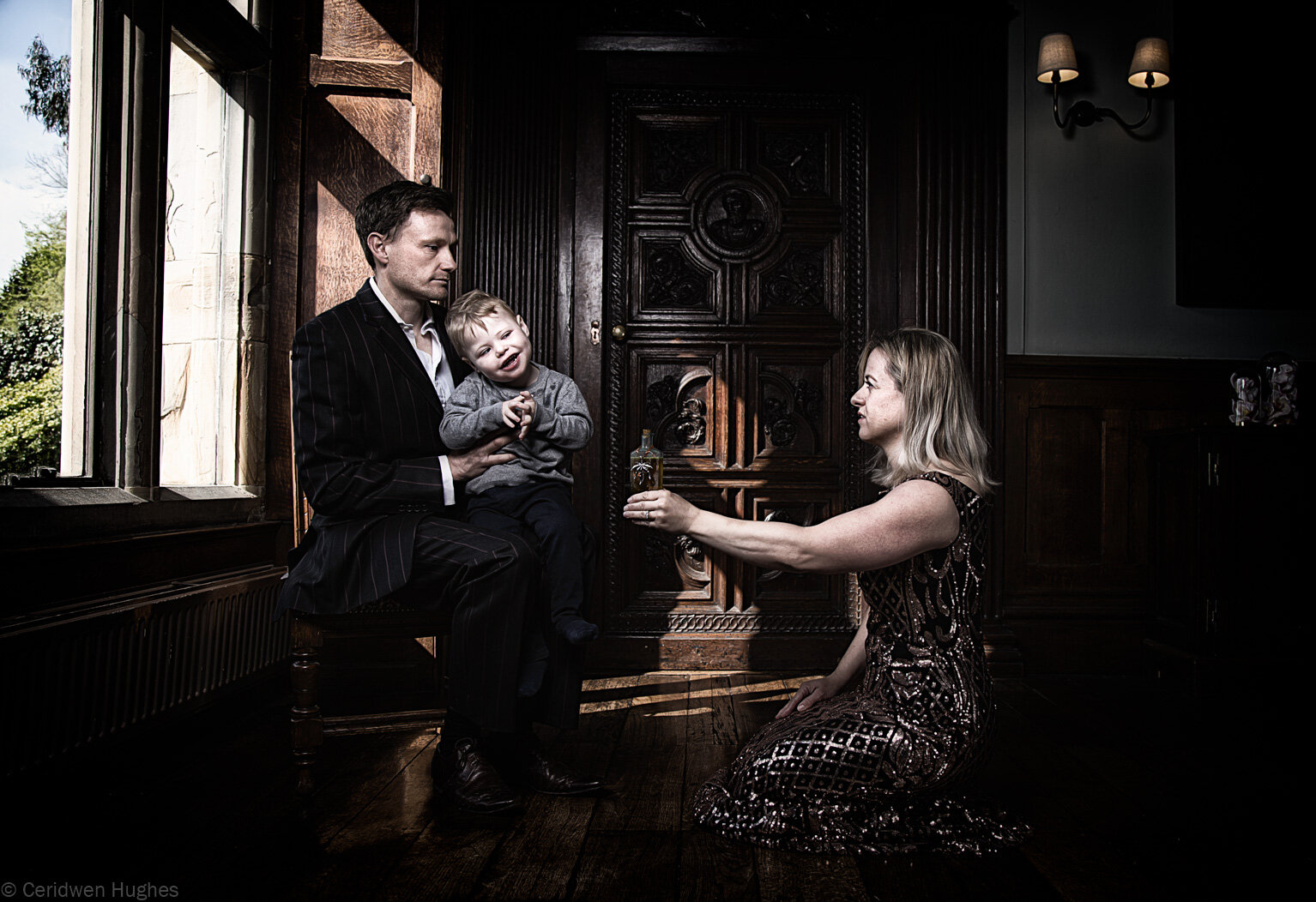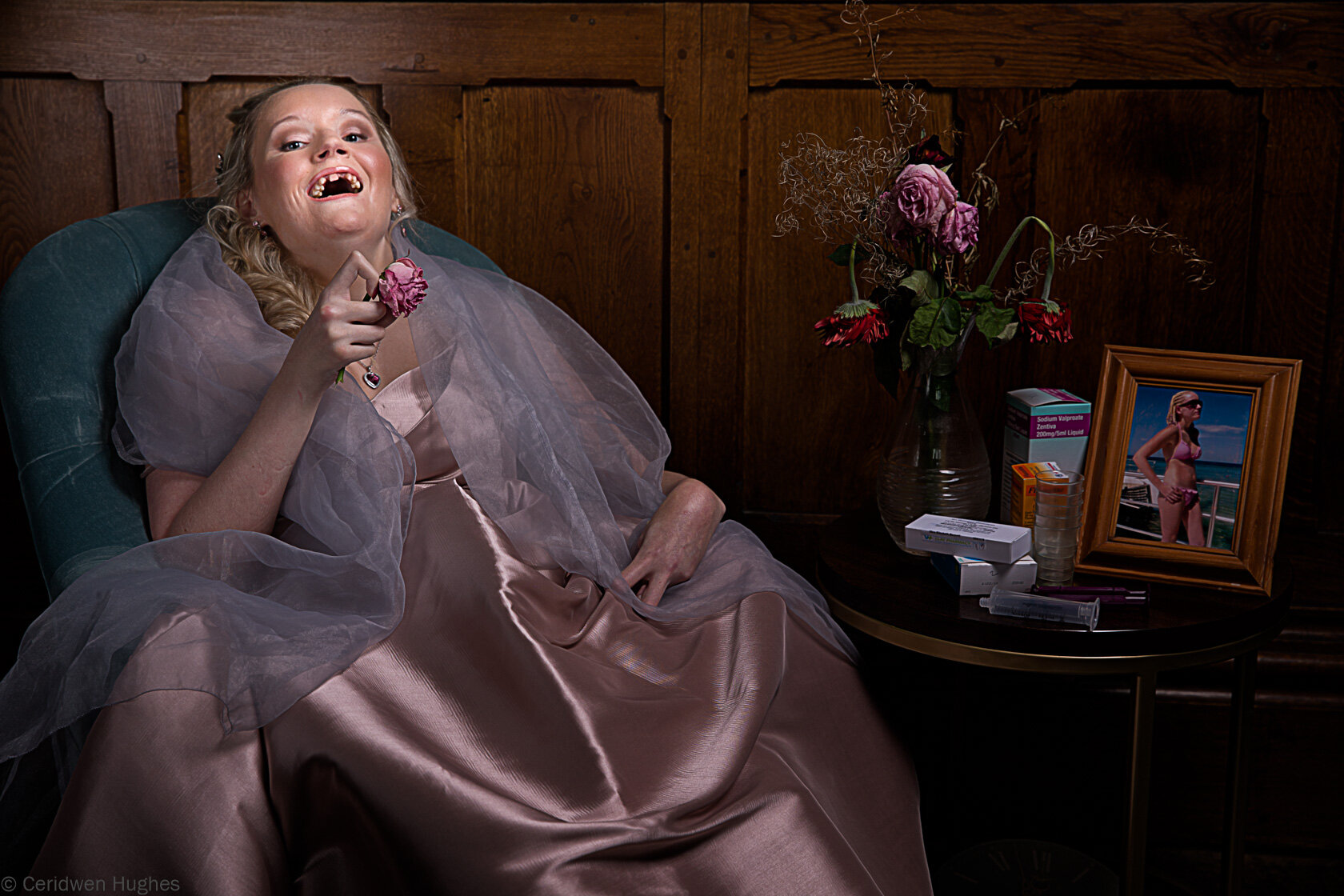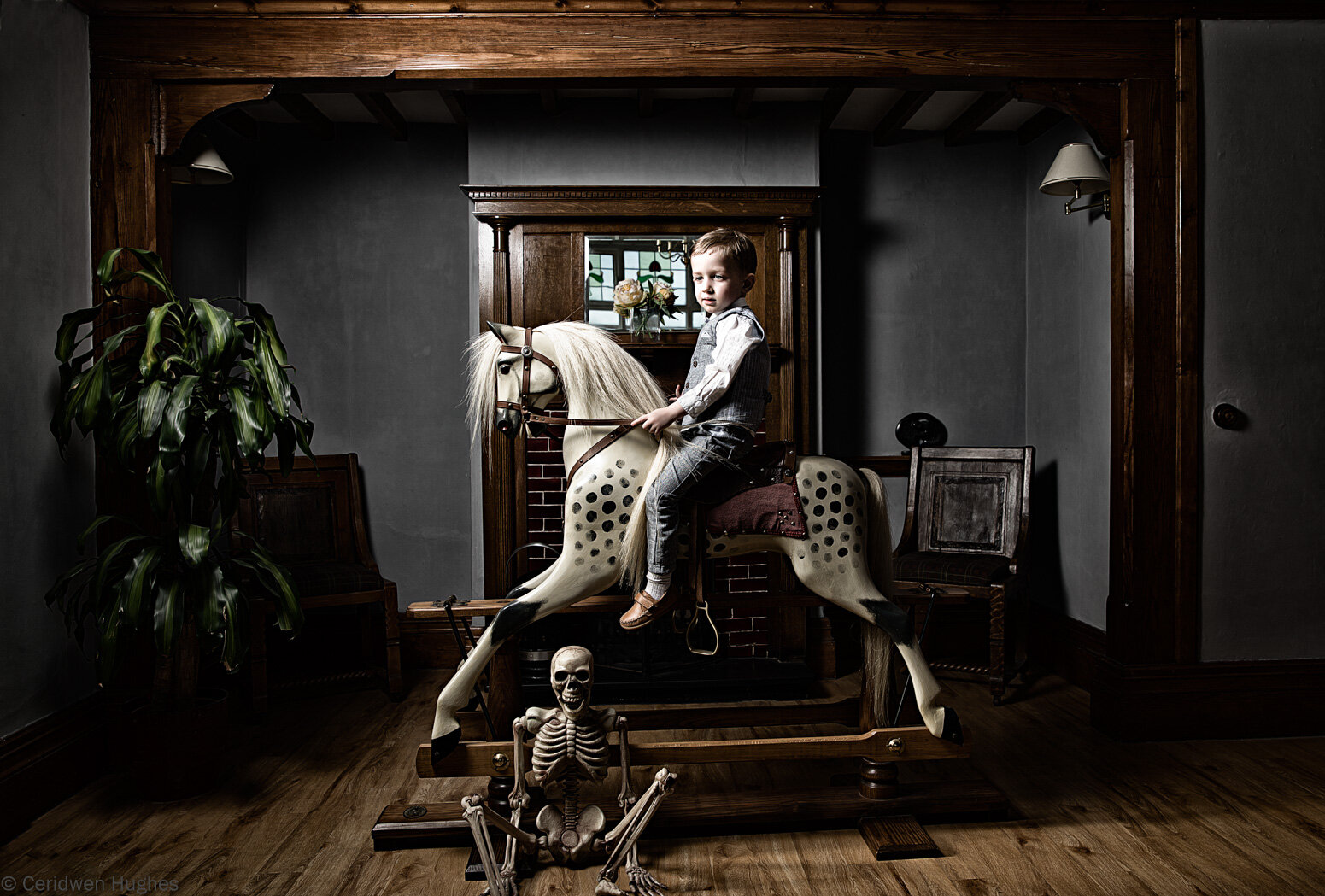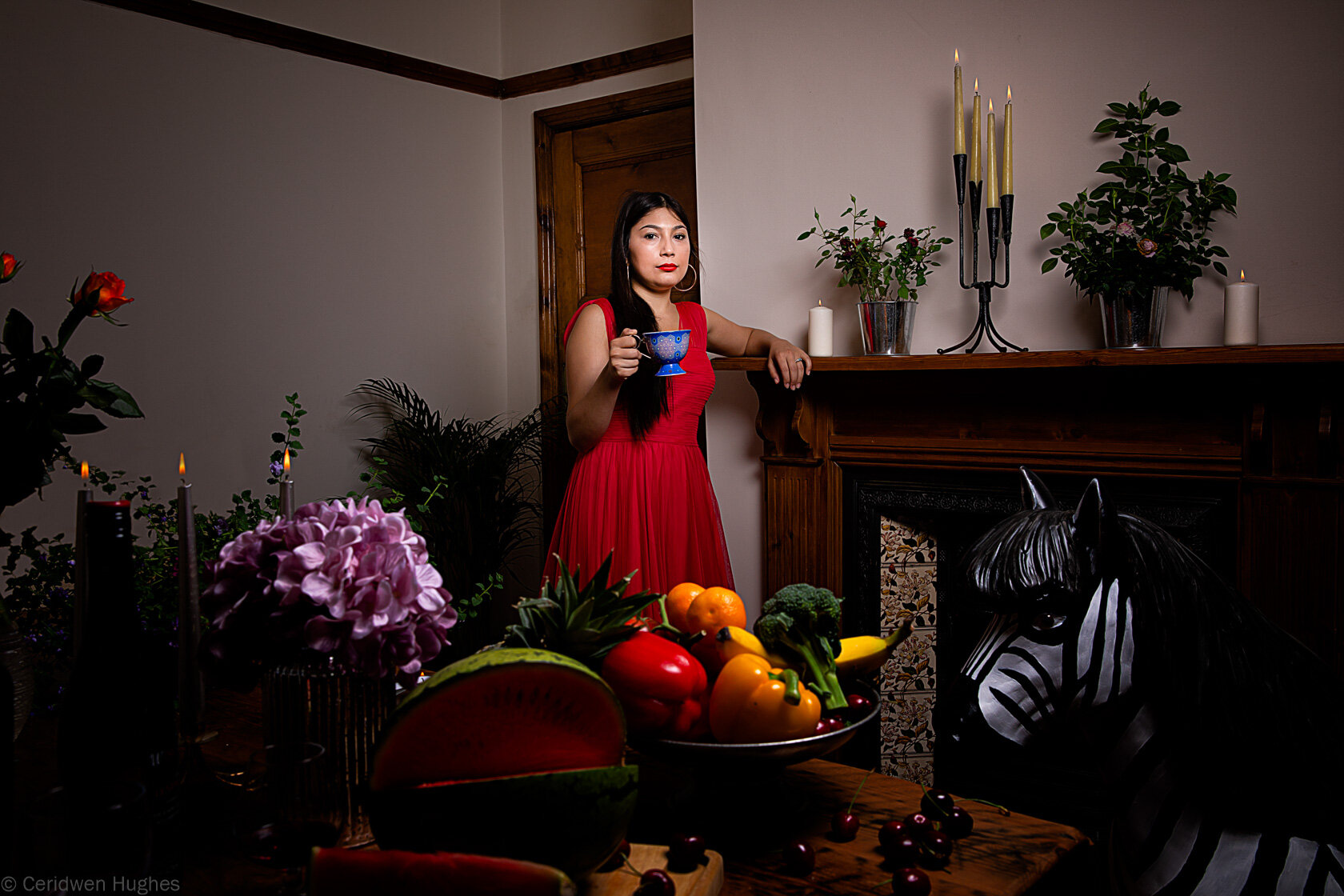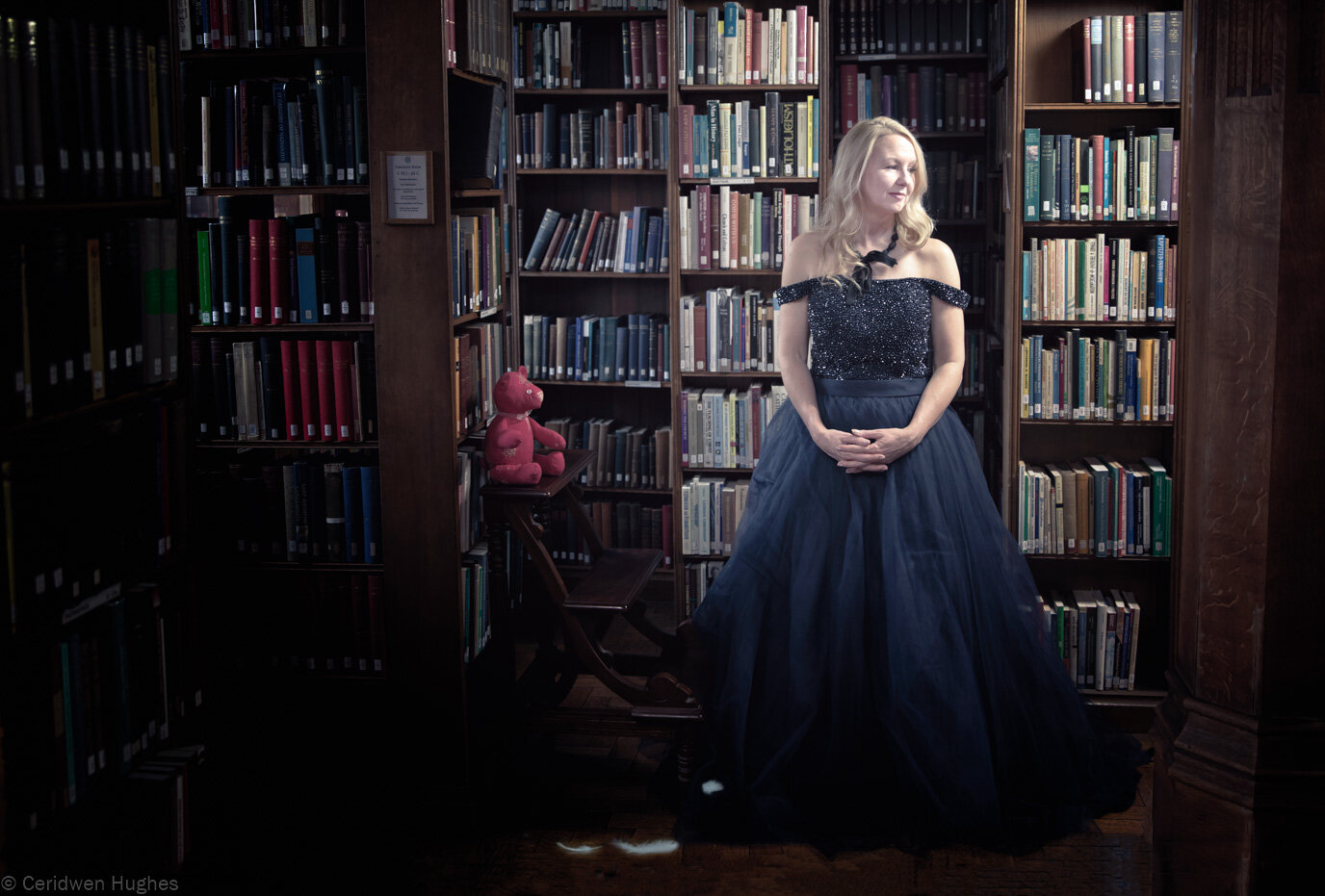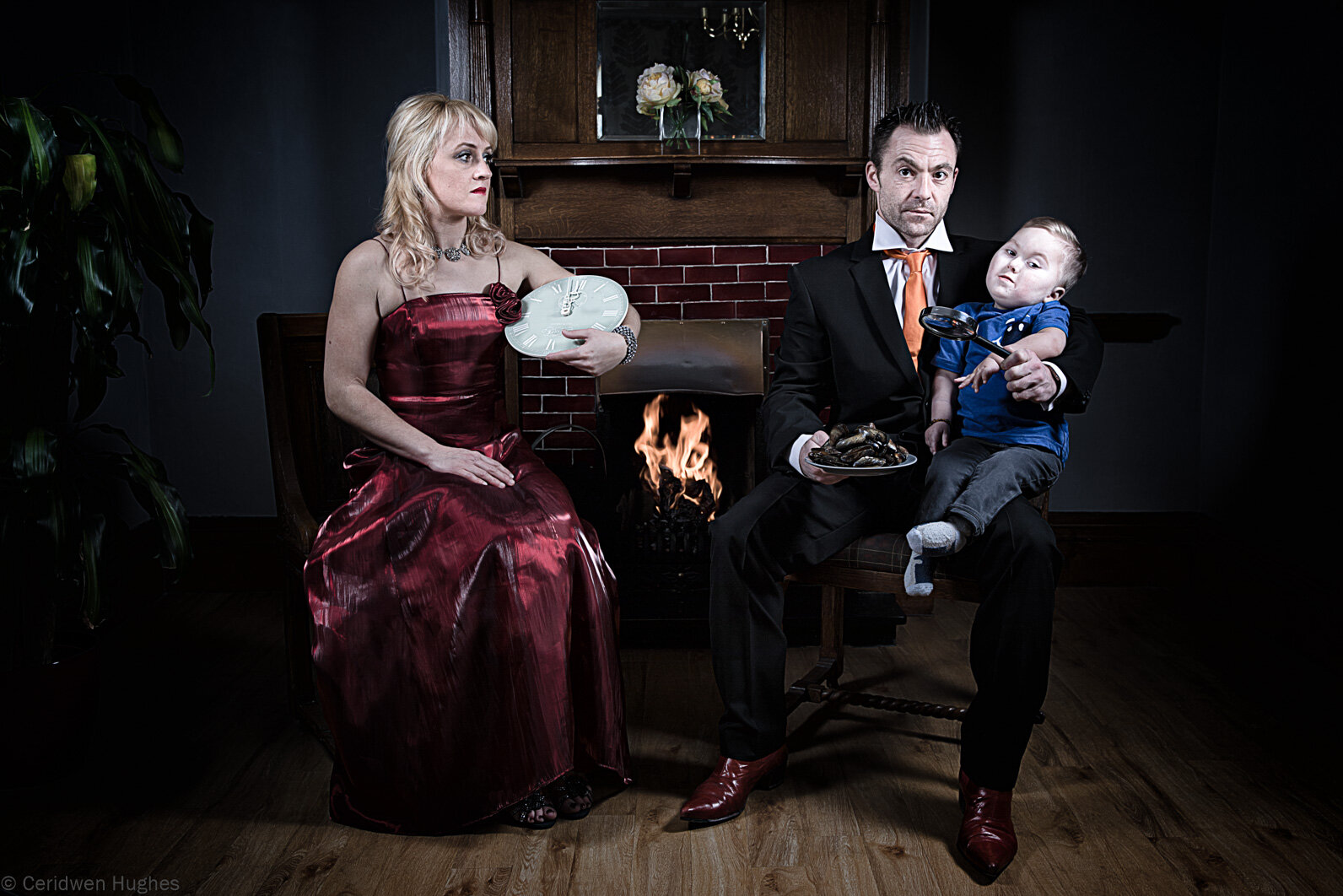Lizzie
“All Lizzie ever wanted was children. She just wanted a nice house and children. Four children she wanted, and she would have made an amazing mum.”
Lizzie is one of three siblings diagnosed with Huntington's Disease. We spoke to her mum, Kim, as part of the 'Beauty of Rare' series of images. She kindly spoke to us about the impact this disease has had on her whole family.
"I was pregnant with Lizzie which was 1989, she was my third baby, when my children’s father had some problems. We were backwards and forwards to see the doctors and then he saw a neurologist. We discovered that in his notes it stated that his father had suffered from Huntington’s disease, which he wasn’t aware of because his parents were divorced when he was a baby, so the problems that we’d had for years were all down to one thing and that was Huntington’s Disease.
Had I not been pregnant with my third child I would never have had children. I love them dearly but there’s no way, if I knew then what Huntington’s was, would I have ever put them through what they are going through now.
When their father was diagnosed we had no idea if any of the children would have the condition. You don’t have them tested as children as it is important that they wait until they get to an age where they understand what a diagnosis would mean to them. It is a rigorous process where they receive counselling for 6 months before having the blood test. I now know that all three of my children have Juvenile Huntington’s Disease.
Christopher is the eldest. He was showing problems at 18 because he started dropping things, suffering with anxiety and having temper tantrums. His character changed and he started getting into fights which was just not like him. Up until that point he had been an absolute pleasure and not at all a difficult teenager. Without us knowing he went to the doctor for a blood test because he thought there was something wrong. He had the counselling before getting the diagnosis but looking back he was really not prepared for the diagnosis and just did not cope at all well. He went from being an outgoing boy who was an absolute pleasure to drinking a bottle of whisky a day. He couldn’t see a life ahead of him. He became reclusive and the only time he’d go through the door was to buy his alcohol, and he started smoking.
He started to self-harm and tried to commit suicide numerous times. He would just take himself off, drink a litre bottle of whisky and go to the river. He tried everything; throwing himself in the river, hanging, taking an overdose but each time he would have drunk lots beforehand and so they would not section him as they said he did not mean to do it. As soon as he was allowed home from hospital he would be there at the river again or finding some other way to try to take his life. This went on for a long time. We tried a number of nursing homes and each time he would leave and try to commit suicide again. He is now at the very late stage of the disease and is in another nursing home. It is heart-breaking because he is a clever lad and knows exactly what is going on. He has got so much fight in him but at the same time he doesn’t want to be here. He was 18 when he was diagnosed and he is now 36.
Lizzie is my youngest child, the baby. During her last year of secondary school she began suffering from depression and she started to disappear from the classroom and hide in the toilets. It was then that she also started to fall over a lot and became concerned that she too might have the disease. I didn’t want to believe that she too could be affected. It really played on Lizzie’s mind and she attempted suicide and took an overdose. After she was discharged we arranged to see a consultant in Manchester to discuss her fears that she too had Huntington’s Disease. She explained her fears and anxieties to the consultant who ran a series of tests. He took a blood sample and explained that it would take 6 weeks for the results. Lizzie was very keen to know if he thought she had the disease, based on her symptoms. For her it was important to know and he confirmed our worst fears although the test results went on to confirm this. I just could not believe that my beautiful daughter had this terrible condition too.”
“For her it was important to know and he confirmed our worst fears although the test results went on to confirm this. I just could not believe that my beautiful daughter had this terrible condition too.”
“Usually from diagnosis it takes many years to become symptomatic but both Lizzie and Christopher had symptoms early on. The boys are boys and they have always been fairly independent, but Lizzie has always been close to us. From a little girl she was Alice in Wonderland, she was just amazing and no trouble, we had no trouble from her at all. To be told that she too had the disease was just horrendous.
As a family it wiped us out, it really did wipe us out. We went through really, really dark times with Lizzie, in a different way to Christopher. She too took to self-harming. She didn’t want to be here. Lizzie thought that everyone would hate her for some unknown reason and just couldn’t see that everyone loved her. She has deteriorated a lot quicker than Christopher and has gone from a bouncy, dancing beautiful girl to being unable to speak, doubly incontinent and unable to walk. It is a terrible, terrible disease.
Jonathan is the middle one. He’s been fine and I really thought, this is it, he’s ok but he was recently diagnosed so we are now starting this terrible journey with him too. The worst thing is, Jonathan is watching his brother and sister go through everything and he knows exactly what is going to happen and that breaks my heart.”
“People ask me how I get out of bed in the morning but you have to, it’s your kids. What would they do without me? I feel that this disease has made me quite bitter. I had friends with children the same age. They are getting married, buying houses and having children. They would chat to me and tell me all about it and I just stand there putting on a brave face but when they leave all I can think of is how my children will never be able to do what theirs can do. All Lizzie ever wanted was children. She just wanted a nice house and children. Four children she wanted, and she would have made an amazing mum. I am missing out on grandchildren but they’re missing out on relationships and children and all that life has to offer. Some days I just feel so much anger and it is awful to say but I envy my friends that their children have the lives I wished for mine. It would mean the world if they could find a cure or treatment for Huntington’s Disease. No-one should have to experience what my three children are going through."
The gene that causes Huntington’s is often called the huntingtin gene. It is attached to a chromosome number 4. It produces an important protein, called huntingtin, which is needed by nerve cells in the brain (neurons) and for the body’s development before birth. In this image, the huntingtin protein is projected onto Lizzie.
When the huntingtin gene is faulty, the protein it produces repeats certain genetic sequences too many times. This in turn appears to damage neurons in certain areas of the brain - although how and why this happens is not yet fully understood.
What is Huntington’s Disease?
Huntington’s disease is an inherited illness caused by a faulty gene in your DNA (the biological ‘instructions’ you inherit which tell your cells what to do). If you have Huntington’s, it affects your body’s nervous system – the network of nerve tissues in the brain and spinal cord that co-ordinate your body’s activities. It can cause changes with movement, learning, thinking and emotions. Once symptoms begin, the disease gradually progresses, so living with it means having to adapt to change, taking one day at a time.
Every child conceived naturally to a parent who carries the Huntington’s gene has a 50% chance of inheriting it. You can live with the faulty gene for years without symptoms, but if you do have it, at some stage you will develop symptoms. It is impossible to know when these will start.
Huntington’s disease affects both men and women and usually develops between the ages of 30 and 50, but can start at any age. If you develop symptoms before the age of 20, this is known as Juvenile Huntington’s disease. There is no cure at this time.
For more information or support please contact www.hda.org.uk.
VIEW THE OTHER STORIES IN THE BEAUTY OF RARE EXHIBITION
If you wish to discuss this project or reproduce any images or story, please contact ceri@samebutdifferentcic.org.uk. The photographer on this project is Ceridwen Hughes (www.ceridwenhughes.com)






